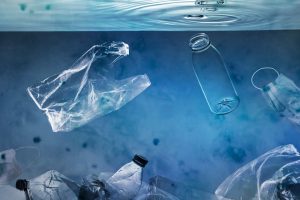In a significant advancement in environmental science, researchers at Monash University have developed an artificial intelligence (AI) program designed to expedite the detection and analysis of microplastic contamination in oceanic environments. This innovative tool aims to enhance the efficiency and accuracy of monitoring efforts, addressing a critical challenge in combating marine pollution.
Addressing the Microplastics Challenge
Microplastics, defined as plastic particles smaller than five millimeters, have become pervasive pollutants in marine ecosystems. Their small size and widespread distribution make detection and analysis particularly challenging, often requiring labor-intensive and time-consuming methods. Traditional techniques can take months to process and analyze environmental samples, hindering timely intervention and policy development.
The AI program developed by Monash University utilizes sophisticated machine learning algorithms to analyze data obtained through Fourier Transform Infrared Spectroscopy (FTIR), a technique that identifies chemical substances based on their unique molecular vibrations. By processing this data, the AI can accurately distinguish microplastics from natural materials, such as tiny seashell fragments or organic fibers, which often resemble synthetic particles under microscopic examination.
Lead researcher Frithjof Herb emphasized the significance of this development, stating, “We are addressing a significant bottleneck for progress in tackling the microplastics problem.” The AI’s ability to rapidly and reliably analyze samples represents a substantial improvement over previous methods, enabling scientists to gain a more comprehensive understanding of microplastic distribution and composition in marine environments.
The implementation of this AI tool is poised to revolutionize environmental monitoring by significantly reducing the time required for sample analysis. This efficiency allows for more extensive and frequent assessments of microplastic pollution, facilitating better-informed strategies for mitigation and prevention. Moreover, the program’s open-source nature ensures accessibility for researchers worldwide, promoting collaborative efforts in addressing this global issue.
The development of this AI program aligns with a growing recognition of the need for innovative technological solutions to environmental challenges. By automating complex analytical processes, AI can enhance the capacity of researchers and policymakers to respond swiftly to emerging pollution threats. Future applications may include integrating this tool with monitoring systems on marine vessels, enabling real-time analysis of ocean samples during voyages.
The AI program developed by Monash University represents a pivotal advancement in the fight against microplastic pollution. By streamlining the detection and analysis process, this tool not only enhances the efficiency of environmental monitoring but also provides critical data to inform policies aimed at preserving marine ecosystems. As microplastic contamination continues to pose significant ecological and health risks, such technological innovations are essential in developing effective solutions to this pervasive problem.



